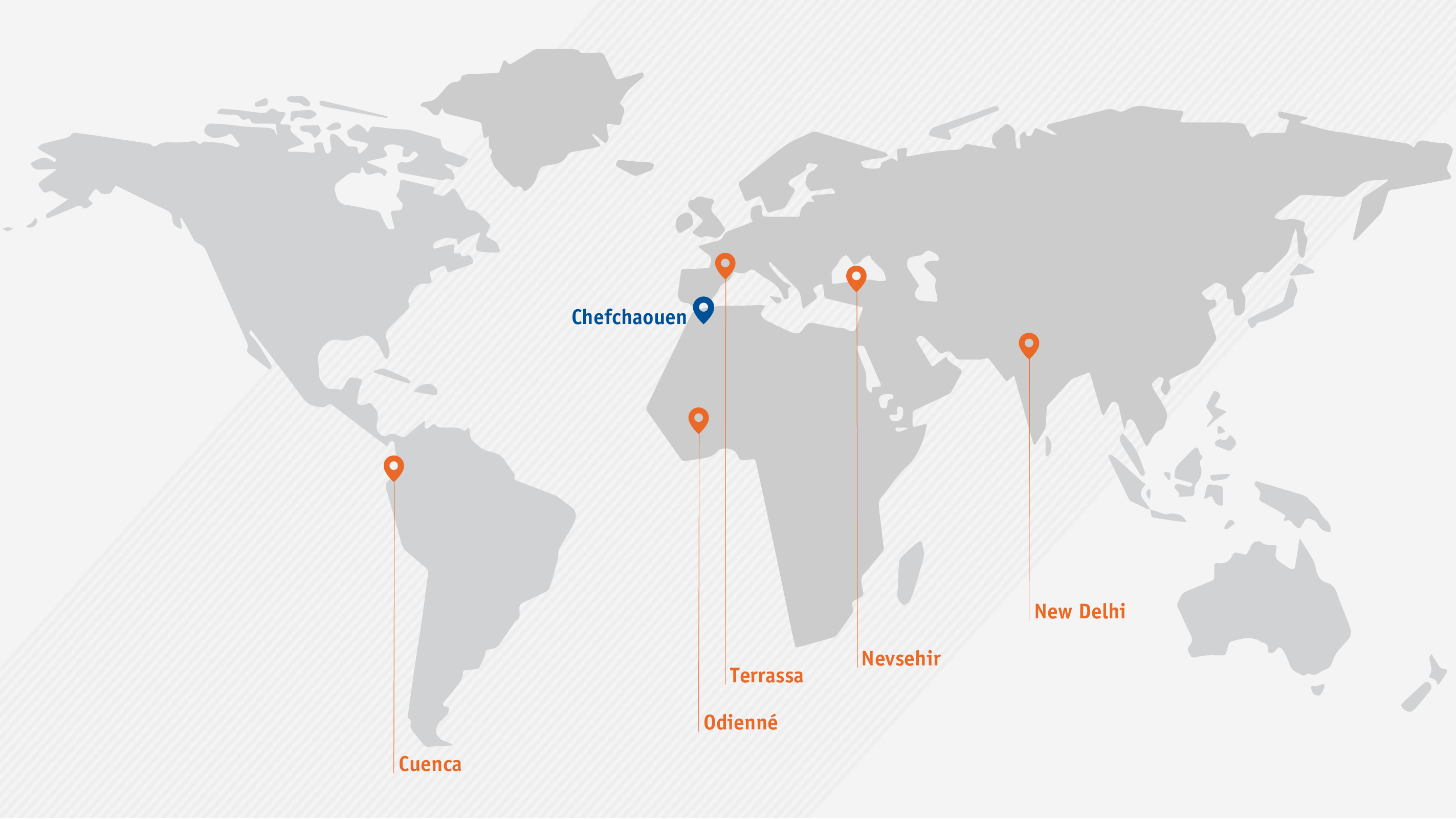Strategy and vision
Implementation of Global Agendas in Intermediary Cities
With this vision and the mission of constructing this narrative, a dynamic of identifying the challenges faced by the intermediate city in the implementation of the World Agendas, and meeting the possible solutions found by some of them, was launched through a worldwide operation of monitoring the Intermediary Cities:
- How is implementation done in Intermediary Cities?
- What are the problems encountered?
- What are the challenges and obstacles facing the political, citizen or legislative will?
- How to facilitate this implementation and its processes for Intermediary Cities?
Thus, these questions were at the centre of the Quito session (October, 2016) during the Third United Nations Conference on Habitat and Sustainable Development, organised by UCLG Intermediary Cities.
Monitoring the implementation of global agendas in Intermediary Cities: The World Forum on Intermediary Cities. A process under construction in Bottom up
Regional/Continental Forums would be organised by the Continental Pilots of the nodal structure of the UCLG Forum on Intermediary Cities, which would bring together a maximum number of Cities from the regions/continents, allowing us to visualise and identify the potentials and challenges of the Intermediary Cities in the implementation of the Global Agendas, and applying the flagship concept of Agenda 2030: "Leave no one behind".

Monitoring implementation at the field level & Facilitating measuring and monitoring instruments for local governments: "Intermediary Cities 2030" Programme
The "Intermediary Cities 2030" programme is a programme which proposes an instrument and a training, carried out on behalf of the experts of the Forum on Intermediary Cities of UCLG. The cities hosting it, keep at the end of the workshop:
- An autocad instrument for monitoring the progress of the municipality's actions
- A mapping of these actions on the territory
- An urban expertise on the balance of sustainability for the future of the city and/or its territory (depending on the cases)
- A classification of the actions and priorities of the city's actions, in relation to the SDGs
It consists of a first stage of "Monitoring and awareness-raising", identifying the SDGs we are working on, then a second stage: "rethinking the city", through which citizens generate a common vision through a dialogue workshop: what SDGs do they dream of for their city, and how can they get involved to achieve them, what projects, what agendas can help to make these projects a reality, etc.
These workshops are based on a participatory approach and a methodology developed by experts from the UCLG Forum on Intermediary Cities. They include the participation of key city stakeholders, civil society, municipal teams, small surrounding municipalities, elected officials, academics and teachers.
The narrative for Global Agendas, on which we are working following the monitoring and awareness workshops at the local level, is: the SDGs bring added value to local actions: the local actions of municipalities read through the SDGs are perceived as bringing added value to the territory and the city, in addition to their connection to the global dynamic of sustainability.

